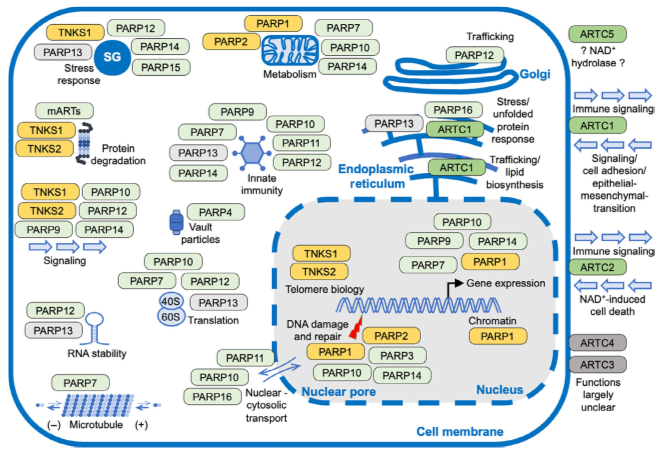Seminar Series: ADP-ribosyltransferases and the innate immune system

I will discuss the new developments that suggest a role of ADP-ribosyltransferases (ARTs) as components of the innate immune system. This senses pathogen-associated molecular patterns (PAMPs), which triggers the synthesis of interferons (IFNs). In turn the expression of IFN-stimulated genes (ISGs) is induced, allowing the host to react swiftly to viral infections. ISGs include several genes encoding ARTs, enzymes that catalyze ADP-ribosylation of proteins and nucleic acids using NAD+ as cofactor. Emerging evidence demonstrates that some mono-ARTs function as PAMP receptors and modify both host and viral proteins relevant for viral replication. Support for mono-ADP-ribosylation in virus-host interaction stems from the findings that some viruses, including Chikungunyavirus (CHIKV), encode mono-ADP-ribosylhydrolases, which antagonize cellular mono-ARTs. PARP10, the first identified cellular mono-ART, modifies and inhibits the protease function of CHIKV. This prevents poly-protein processing and viral replication. The viral non-structural protein 3, which encodes a mono-ADP-ribosylhydrolase, antagonizes cellular mono-ADP-ribosylation and reactivates the protease. This provides mechanistic information for the essential function of this enzymatic activity for CHIKV replication.

COM 1400 & Zoom

